Dental Implants
And how they can improve your life
Dental implants are the optimal option for replacing missing teeth. Missing teeth create a myriad of challenges: jaw bone loss, compromised chewing and speech, poor fitting dentures, and aesthetic problems. Dental implants can solve all of these issues and comes closest to replicating the function, look, and feel of your natural teeth.
Let's talk about implants.
Give us a call to set up a free consultation and talk to Dr. Andrew about dental implants and if they are a good option for you.
Phone: (507) 537-1052
Email: info@frerichdds.com
Why choose dental implants?
Improved Aesthetics
Dental implants fill the gaps left by missing teeth and restore your beautiful smile.
Restoration of oral function
Dental implant restorations function and feel like healthy, natural teeth. You can return to eating your favorite foods again once the base implants have properly integrated into the jaw bone. This is a significant upgrade for people using dentures or bridges that cannot handle the forces of all foods.
Improved speech
Teeth play an essential role in speech and articulation. A missing tooth can compromise pronunciation and understandability. Dental implants successfully fill the gaps and restore the proper interaction of your teeth with your tongue and lips while speaking.
Self-supporting Solution
Unlike removable dentures and bridges, dental implants are ‘rooted’ in the bone and do not require support from the surrounding teeth and gums. As a result, inflammation of the gums is typically minimal/non-existent and there is less damage to the surrounding teeth.
Minimal discomfort
Dr. Andrew utilizes 3-D imaging with a Cone-Beam CT scanner and virtual imaging to create a surgical guide customized to your mouth and implant placement. This enables us to place your implants with extreme precision and with minimally invasive techniques. These techniques allow for minimal post-operative pain and a much shorter recovery period. Sedation is an option for the implant placement surgery at our office for your comfort.
Maintenance of bone structure
When a permanent (adult) tooth is removed without replacement, the bone that supports that tooth deteriorates—generally about 25% of the bone is lost in the first year after tooth loss. Implants are rooted into the bone, mimicking the root of the tooth, thus continuing good healthy bone stimulation.
Long-term solution
If the implant is maintained and cared for properly, dental implants can last a lifetime!
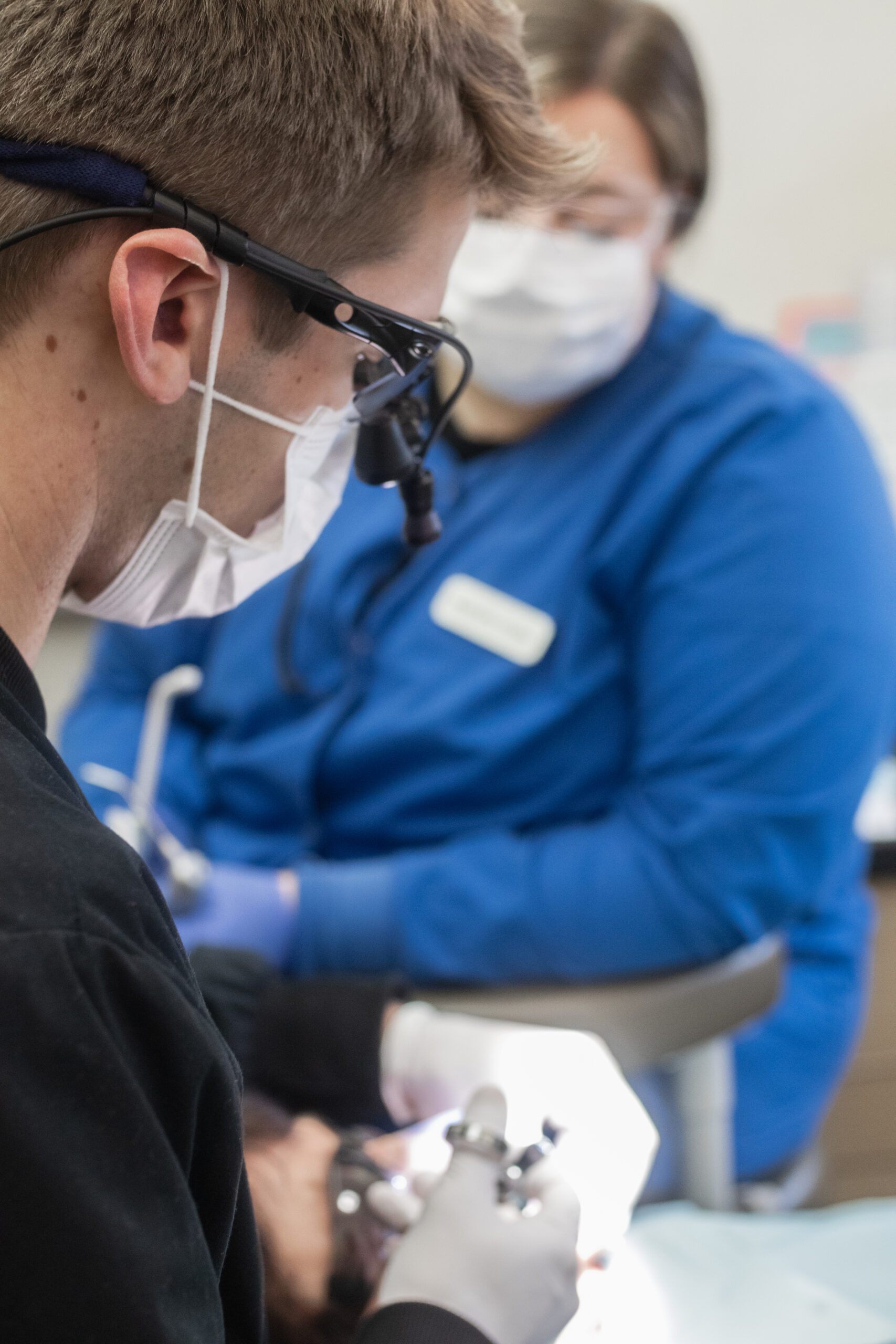
Implant Options for Every Need.
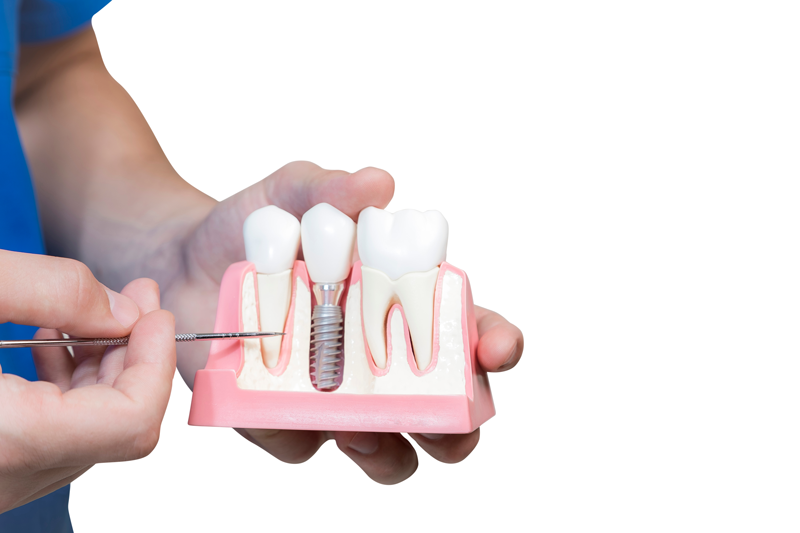
SINGLE-TOOTH IMPLANT
Dental implants can be used to restore a single missing tooth. For a single implant, there are three components: the implant, the abutment, and the crown. The implant anchors and integrates down into the jaw bone. The abutment attaches to the implant and creates a platform above the gums for the crown to be cemented onto. The crown is the part that looks like a tooth and fills the space of the missing tooth.
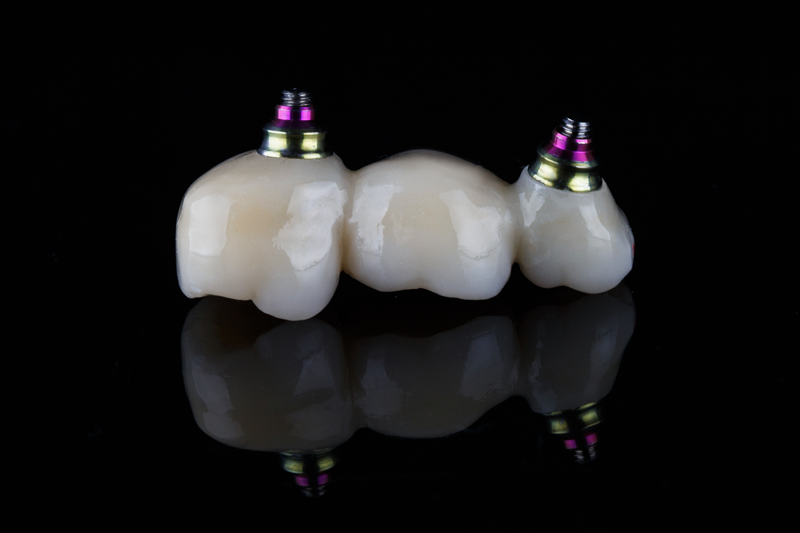
IMPLANT-SUPPORTED FIXED BRIDGES
Implant-supported fixed bridges replace two or more missing teeth. Implant-supported fixed bridges are an appliance that is cemented onto strategically placed implants to replace teeth. This procedure does not rely on adjacent teeth to provide support for the bridge. Implant-supported fixed bridges also provide the ongoing bone stimulation needed to prevent jaw bone loss.
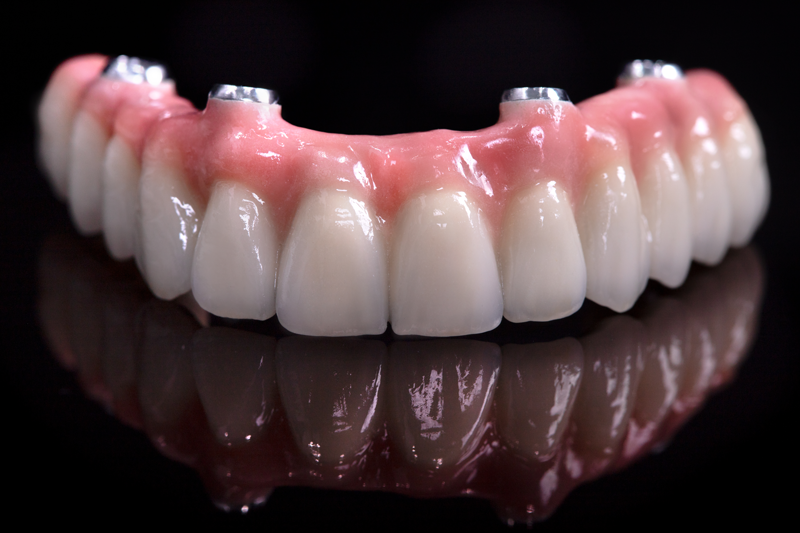
FULL ARCH REPLACEMENT WITH FOUR OR SIX IMPLANTS
This procedure is a complete replacement of the teeth on the upper and/or lower mouth supported by strategically placed implants and is cemented into place. Unlike traditional dentures, this procedure provides a solution to missing teeth that is stable, non-removable, and is similar to the look, feel, and function of natural teeth.
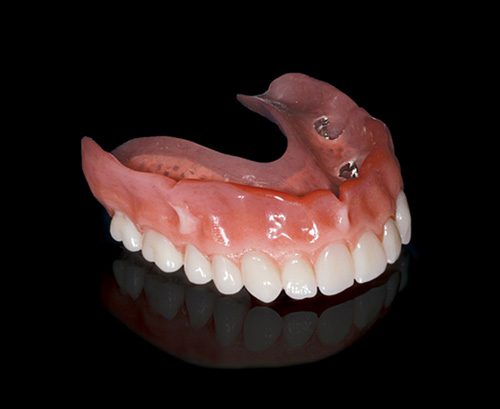
IMPLANT-RETAINED DENTURE
An implant-retained denture is a full denture that clicks into a number of strategically placed implants in the upper and/or lower jaw. These small surgical posts provide precise points of attachment for the overlying denture and add a significant measure of stability and retention.